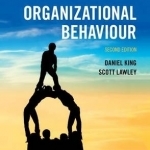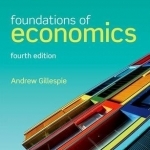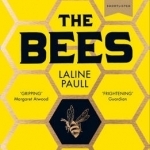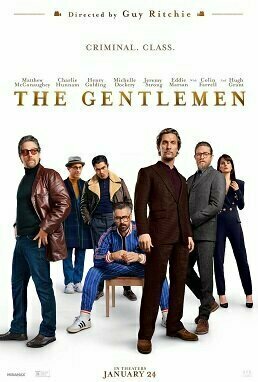
Italian <-> Slovenian Slovoed Compact talking dictionary
Reference and Education
App
#1 DICTIONARY TECHNOLOGY IN THE WORLD 13 000 entries and 10 000 Italian audio pronunciations...

Organizational Behaviour
Book
Organizational behaviour affects all of us, every single day. But do your students struggle to see...
Play in Early Childhood Education: Learning in Diverse Contexts
Marjory Ebbeck and Manjula Waniganayake
Book
The topic of play is fundamental to understanding how children grow and learn. Play in Early...
I do not agree with the main argument of this biography: that William Shakespeare was, in fact, only a pen name for Edward de Vere, the Earl of Oxford. No. I do not agree with this claim, like so many other Shakespeare scholars and lovers because the "facts" put forth are just very thinly stretched ideas and concepts that cannot be proven.
This book, instead of pushing me to think about how this fact could even possibly be true, is more about the life of Edward de Vere and how some of the circumstances in his life would be able to loosely connect to the plays Shakespeare had written. In tying in the plays, Anderson thinks he is making a stronger claim for his argument, but is honestly just trying to connect things that are unalike to "prove" what he is thinking. As an English major, I don't really like that way of thinking much.
Most of what he was trying to argue could have been left out and, instead, just have the appendices left in there. In the approximately sixty pages of the four appendices, he stated what over three hundred pages could not. No, I do not agree with the argument he is making, but it seems like it is stronger and more coherent in the appendix.
I want to point out a specific quotation from the Appendix A on page 381 to make a point about this book. It states: The thesis of this book, the "Oxfordian" proposition that Edward de Vere was Shake-speare, is a theory built on circumstantial evidence. There is no single "smoking gun" document that leads one inexorably to the conclusion that de Vere wrote Hamlet, King Lear, the Sonnets, etc." I understand that it is difficult to try to prove a theory that many argue against (myself included), but basing your argument solely on circumstantial evidence is not the way to go. It makes the argument, at least to me, seem less realistic and, in all honesty, difficult to agree with. If you cannot prove someone is guilty solely based on circumstantial evidence, you should not try to prove a complex argument that a famous playwright was not a real person, but, in fact, a pseudonym for another historical figure around the same time.
The "facts" that de Vere's life has similar qualities to the plays written by Shakespeare leading to the thought that de Vere, himself, is Shakespeare is a stretch, and not a convincing one at that.
Overall, I did not enjoy this book and I did not find it convincing at all. It felt more like a history lesson about the background of Edward de Vere rather than any kind of argument towards the idea that he could have been Shakespeare.
In my heart of hearts, I will always believe that William Shakespeare was, in fact, a real man by the name of William Shakespeare, not some made up name for a man who wanted to keep his private life separate from the public.
Established British playwright Laline Paull’s debut novel, The Bees, represents just that. I may just be reading too much into the buzz, but the Oxford alumni who has had two plays performed at the Royal National Theatre must have some of the country in her subconscious as she writes.
The novel follows the life of worker honeybee Flora 717, born of the lowest class of bee society. In a world where mutation and difference is destroyed on sight, the larger-than-average Flora is saved from destruction by opportunities born from austerity in the hive, where ‘the season is deformed by rain, and the flowers shun’ the bees, so they need every available worker.
The life of the honeybee turns out to be symmetrical of Plato’s Republic and his utopia, where children are told what role they will have in life based on their ‘blood’. Plato divided the bronze craftsman, silver guardians and golden philosophers, and Paull divides bees in their ‘kin’ groups, named after flowers, and are priestesses to police, foragers who can fly outside the hive to the sanitation Flora, the lowest, and are given ‘no flower’. ‘A Flora may not make Wax for she is unclean, nor Propolis for she is clumsy, nor ever may she forage for she has no taste, but only may she serve her hive by cleaning,’ but the talented Flora 717 wants more.
Throughout the novel, Paull shows the same attachment to characters as George R R Martin, author of the Game of Thrones novels; the frequent loss deepens the heartbreak Flora must overcome as she fights to defy her set fate and claim the most illegal of desires. No reader will escape the anguish that concludes each new adventure.
The hive is akin to a cult, with leaders keeping their inferiors in check, with fear, intoxication and just a little hypnosis. The cult is complete with its own religion, mantra and even a parody of the Lord’s Prayer, ‘Hallowed be thy womb’, arguably my favourite part. This made the story really exciting, being on the ‘outside looking in’ as the reader, I wanted to encourage Flora to defy, but felt the fear of going against her sisters (this isn’t a cult bond word, they are all blood sisters, for only ‘the queen may breed’).
Paull’s scriptwriting has nurtured the ability to make the reader visualise her words exactly how she writes them, and that is clear within The Bees. I can see the wax panels that Flora 717 scuttles across as she travels around her hive, I can imagine the wax cribs in the nursery and know the deadly yellow and fine lines of the enemy wasp. In the ‘glass cage’ when Flora discovers the Venus Fly Trap, Paull never mentions the plant by name, but speaks only of their ‘red mouths’ with ‘white filaments’ on each ‘inner lip’, they ‘bore no pollen, the only nectar a viscous slick at the join of the petals’. But for all her beautiful imagery seeping off the pages, The Bees was not a book I have felt submerged in.
Full review on <a href="http://www.natari-himi.com">natari-himi.com</a>;
Lee (2222 KP) rated The Gentlemen (2020) in Movies
Jan 5, 2020
Matthew McConaughey is Mickey Pearson, a sharp suit wearing, self made millionaire. Mickey made his fortune by initially selling weed to students while studying with them at Oxford, before spending the next 20 years building up a nationwide marijuana empire. It’s a slick operation too - by striking up deals with British aristocrats who are struggling to maintain their large stately homes, Mickey has been able to setup 12 marijuana farms on their premises and kept them undetected. However, Mickey is now looking to sell up and retire so that he can buy himself one of those big stately homes for him and his ice queen wife (Michelle Dockery). But it’s not quite as easy as that. There are a number of interested parties who either want to screw the price down or just take the whole operation from under Mickey’s feet. And the king of the jungle isn’t having any of it.
The story plays out under the narration of sleazy reporter Fletcher (Hugh Grant), who has turned up on the doorstep of Mickey’s right hand man Raymond (Charlie Hunnam) one evening in order to try and blackmail his boss. Fletcher has been hired by a tabloid editor to dig up dirt on Mickey Pearson and has been closely following the events and players surrounding the sale of his business. Fletcher has decided that what he’s uncovered could be worth a hell of a lot more than the £150K promised by the newspaper and has turned his findings into a movie script which he then proceeds to describe to Raymond throughout the movie. Along the way, details are embellished by Fletcher to spice up certain moments that he feels are lacking in action, corrected by Raymond as we rewind to see the actual events.
The Gentlemen features a big ensemble cast, most of which give a brilliantly hilarious performance. Hugh Grant steals the show, with his campy Michael Caine. Along the way we meet Chinese rival Dry Eye (Henry Golding, redeeming himself after his wooden performance in Last Christmas recently) and Coach (another show stealer, played by Colin Farrell).
The pacing of The Gentlemen felt spot on for me, and as the story flipped back and forth in time, interspersed with Fletcher and Raymond’s comic interludes, I never felt bored. There are plenty of twists and turns, c-bombs and much more of what you’d expect from a Ritchie movie of this kind. But it also feels a lot slicker and more mainstream, with most of the violence occurring off screen - apart from the odd cocky young chav or drug addict getting the occasional well deserved slap!
Overall, I’m so glad I have this movie a chance. A great cast and a fun story with plenty of laugh out loud moments.

SIMON - Malls, Mills & Premium Outlets for iPad
Shopping and Lifestyle
App
SIMON, NOW FOR YOUR iPAD. The official SIMON iPad app for every savvy shopper that visits one of the...

Anatomy & Physiology, Biology, Neuroanatomy USMLE
Education and Medical
App
Draw it to Know it – Medical Science Draw it to Know it: Medical Science is an online educational...

Foundations of Economics
Book
Is there more the government could do to help the UK economy grow faster? What will happen to house...



